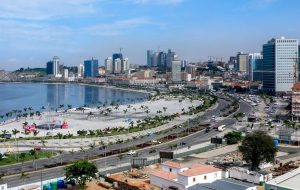Globalization
Introduction
Before the year 2000, the world was functioning in parts but from the year 2000, the world becomes a global system functioning as “one body”. The question most people often ask is “what has happen to the world?” The answer to this question is that “the world has been globalized”. From here, it is understood that the world cannot function as “one body” when economic and communication barriers still exist. The abolition of economic and communication barriers let to the world becoming a small village and that is what is known as globalization.
What is Globalization?
Globalization is not a new concept. In ancient times, merchants traveled vast distances to buy rare commodities such as salt, spices and gold, which they would then sell in their home countries. The 19th century Industrial Revolution brought advances in communication and transportation that have removed borders and increased cross-border trade. In the last few decades, globalization has occurred at an unprecedented pace. Globalization is a process of global economic, political and cultural integration. It has made the world become a “small village”; the borders have been broken down between countries. ”The history of globalization goes back to the second half of the twentieth century, the development of transport and communication technology led to situation where national borders appeared to be too limiting for economic activity” (Economic Globalization in Developing Countries, 2002).
The Positive Effects of Globalization on the Third-World Countries

Globalization is playing an increasingly significant role in the developing countries particularly Africa. It is observed that, globalization has contributed enormously to the development of economic processes, technological systems, political systems, health systems, educational systems, social and natural environment of developing countries. It has a lot of benefit on their daily life of the people of the third-world countries. Globalization has created a new opportunities for developing countries. Such as, technology transfer, greater opportunities to access developed countries markets, growth and improved productivity and living standards. All these positive factors have contributed to the rapid growth of third-world economics.
The Negative Effects of Globalization on the Third-World Countries
Globalization has not only play an important role in the economic, political and social growth of the developing countries particularly Africa but has also brought up new challenges such as, environmental deteriorations, instability in commercial and financial markets, increase inequity across and within nations. Assimilation of weaker cultures mostly that of the developing countries. Economic downturns in develop countries directly affect other third-world countries’ economies through a domino effect. For example, in 2010 when Europe had economic crisis the impact was transfer to Africa because Euro zone is one of the major importers of raw material from Africa. In addition, globalization may have disproportionately benefited Western corporations and enhanced wealth disparity in the world. Free trade implies a greater risk of failure for small, private or family-owned companies in Africa and other third-world countries competing in a global market with large multinational companies from develop countries. There is also a digital divide because most people in developing countries have limited internet access oppose to those in the develop world. Globalization has contributed to global warming, climate change and the overuse of natural resources which are all challenges face by the third-world nations.
Factors Favoring Globalization
Public policy is one of the main driving factors behind the current globalization boom that the world is experiencing. Over the past 20 years, governments worldwide have integrated a free market economic system through fiscal and financial policies as well as trade agreements. This evolution of economic systems has increased industrialization and financial opportunities abroad. Governments now focus on removing barriers to trade and promoting international commerce.
Technology is also one of the major contributors to globalization. Advancements in IT, the development of World Wide Web (www), social media (facebook, twitters, whapsap, messengers, etc) and the flow of information across borders have increased awareness among populations of economic trends and investment opportunities. Technological advancement such as digitalization has simplified and accelerated the transfer of financial assets between countries leading to rapid economic growth.
The Controversy of Globalization

Advocates of globalization believe it helps developing countries accelerate their processes of becoming industrialized nations through increased manufacturing, diversification, economic expansion and improvements in standards of living. China, South Korea, Brazil, South Africa are good examples of national economy that has benefited immensely from globalization. Outsourcing by companies brings jobs and technology to developing countries. Trade initiatives increase cross-border trading by removing supply-side and trade-related barriers. The North American Free Trade Agreement, for example, encouraged U.S. car manufacturers to relocate operations to Mexico where labor costs are lower, and many U.S. companies have outsourced call centers to India. Globalization has advanced social justice on an international scale, and globalization advocates report that it has drawn attention to human rights worldwide. In addition, some feel the spread of pop culture across borders will advance the exchange of ideas, art, language and music.
Conclusion
Despite the negative effects of globalization on the Third-World Countries, majority of people around the world holds that globalization has largely positively influence the conditions of the people living in the those countries. The democratic processes, human rights conditions, economic development, technology development, etc has greatly improved because of democracy.
References
Kotilainen, M & Kaitila, V. (3/2002).”Economic Globalization in Developing Countries”, The journal of Economic in Developing Countries, pp 70.
